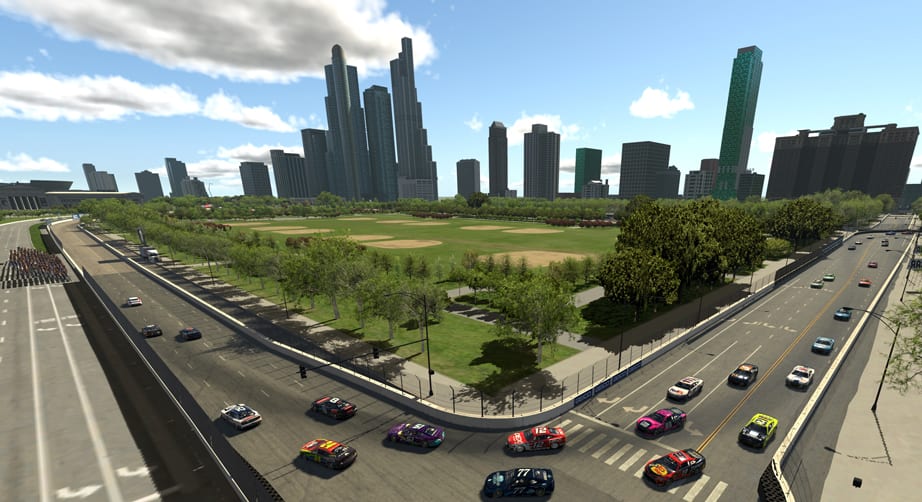In a groundbreaking move that showcases the growing intersection of virtual and real-world racing, NASCAR made history this weekend by hosting its first-ever street race on the iconic streets of Chicago. The extraordinary journey towards this momentous event can be traced back to the ingenuity of iRacing, the leading online racing simulation platform. By meticulously designing and developing a virtual version of the Chicago Street course, iRacing played a pivotal role in bringing the thrilling world of street racing to NASCAR’s forefront.
The Rise of iRacing
iRacing has been revolutionizing the racing industry since its inception, offering a highly realistic and immersive experience for motorsport enthusiasts worldwide. With its cutting-edge technology, meticulously crafted digital replicas of real-world race tracks, and a passionate community of virtual racers, iRacing has become a driving force in the world of motorsports.
Creating the Virtual Chicago Street Course
Recognizing the growing demand for street racing in NASCAR, iRacing embarked on an ambitious project to build the virtual version of the Chicago Street course. This task involved gathering extensive data about the streets and landmarks, collaborating with professional track designers, and employing state-of-the-art laser-scanning technology to capture every detail accurately.
The iRacing team left no stone unturned in their pursuit of perfection. From the undulations of the asphalt to the position of the curbs and the height of the barriers, every aspect of the Chicago Street course was faithfully recreated in the virtual world. By blending real-world data with their expertise in track design, iRacing ensured that the virtual rendition of the course was as close to reality as possible.
Simulating Real-Life Conditions
To further enhance the authenticity of the virtual Chicago Street course, iRacing’s engineers focused on simulating real-life conditions and challenges faced by drivers during street races. They accounted for factors like surface grip, weather changes, lighting conditions, and even the subtle nuances of the track’s surroundings. By doing so, iRacing aimed to provide NASCAR drivers with a platform that would prepare them for the unique demands of racing on a street circuit.
Testing and Iteration
Once the virtual Chicago Street course was complete, iRacing engaged professional drivers and NASCAR teams in extensive testing sessions. The goal was to gather feedback, fine-tune the track’s characteristics, and ensure that it provided an exhilarating yet safe racing experience. The iterative process helped iRacing to continually refine the virtual course, replicating the handling dynamics of real-world race cars and validating its accuracy through driver feedback.
The Realization of a Dream
The success of iRacing’s virtual Chicago Street course prompted NASCAR officials to seriously consider the possibility of a real-life street race in the city. With the virtual track serving as a proof-of-concept, NASCAR collaborated with local authorities and track designers to bring the concept to life. The iRacing team shared their knowledge and insights, facilitating a seamless transition from the virtual realm to the streets of Chicago.
The Inaugural NASCAR Street Race
After years of anticipation, the moment finally arrived as NASCAR’s first-ever street race roared to life on the streets of Chicago. The virtual-to-reality transformation was met with resounding success, with fans, drivers, and officials celebrating the unique spectacle. The virtual training provided by iRacing’s Chicago Street course allowed drivers to navigate the challenging twists and turns with confidence, providing an electrifying race for both participants and spectators.
The marriage of virtual and real-world racing has unlocked new possibilities for the motorsport industry. iRacing’s pioneering efforts in building the virtual Chicago Street course for NASCAR played a vital role in making the inaugural street race a reality. By meticulously replicating the real-world challenges



































































